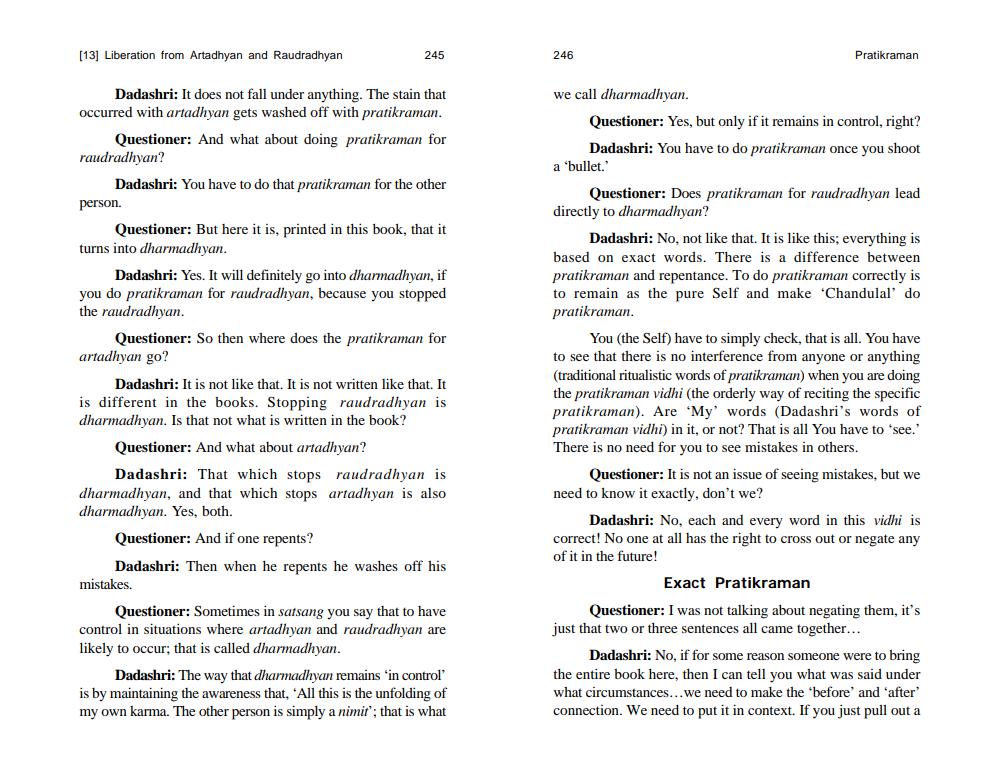________________
[13] Liberation from Artadhyan and Raudradhyan
245
246
Pratikraman
Dadashri: It does not fall under anything. The stain that occurred with artadhyan gets washed off with pratikraman.
Questioner: And what about doing pratikraman for raudradhyan?
Dadashri: You have to do that pratikraman for the other person.
Questioner: But here it is, printed in this book, that it turns into dharmadhyan.
Dadashri: Yes. It will definitely go into dharmadhyan, if you do pratikraman for raudradhyan, because you stopped the raudradhyan.
Questioner: So then where does the pratikraman for artadhyan go?
Dadashri: It is not like that. It is not written like that. It is different in the books. Stopping raudradhyan is dharmadhyan. Is that not what is written in the book?
Questioner: And what about artadhyan?
Dadashri: That which stops raudradhyan is dharmadhyan, and that which stops artadhyan is also dharmadhyan. Yes, both.
Questioner: And if one repents?
Dadashri: Then when he repents he washes off his mistakes.
Questioner: Sometimes in satsang you say that to have control in situations where artadhyan and raudradhyan are likely to occur; that is called dharmadhyan.
Dadashri: The way that dharmadhyan remains 'in control is by maintaining the awareness that, 'All this is the unfolding of my own karma. The other person is simply a nimit', that is what
we call dharmadhyan.
Questioner: Yes, but only if it remains in control, right?
Dadashri: You have to do pratikraman once you shoot a 'bullet.
Questioner: Does pratikraman for raudradhyan lead directly to dharmadhyan?
Dadashri: No, not like that. It is like this; everything is based on exact words. There is a difference between pratikraman and repentance. To do pratikraman correctly is to remain as the pure Self and make 'Chandulal' do pratikraman.
You (the Self) have to simply check, that is all. You have to see that there is no interference from anyone or anything (traditional ritualistic words of pratikraman) when you are doing the pratikraman vidhi (the orderly way of reciting the specific pratikraman). Are 'My words (Dadashri's words of pratikraman vidhi) in it, or not? That is all You have to see.' There is no need for you to see mistakes in others.
Questioner: It is not an issue of seeing mistakes, but we need to know it exactly, don't we?
Dadashri: No, each and every word in this vidhi is correct! No one at all has the right to cross out or negate any of it in the future!
Exact Pratikraman Questioner: I was not talking about negating them, it's just that two or three sentences all came together...
Dadashri: No, if for some reason someone were to bring the entire book here, then I can tell you what was said under what circumstances...we need to make the 'before and after connection. We need to put it in context. If you just pull out a




